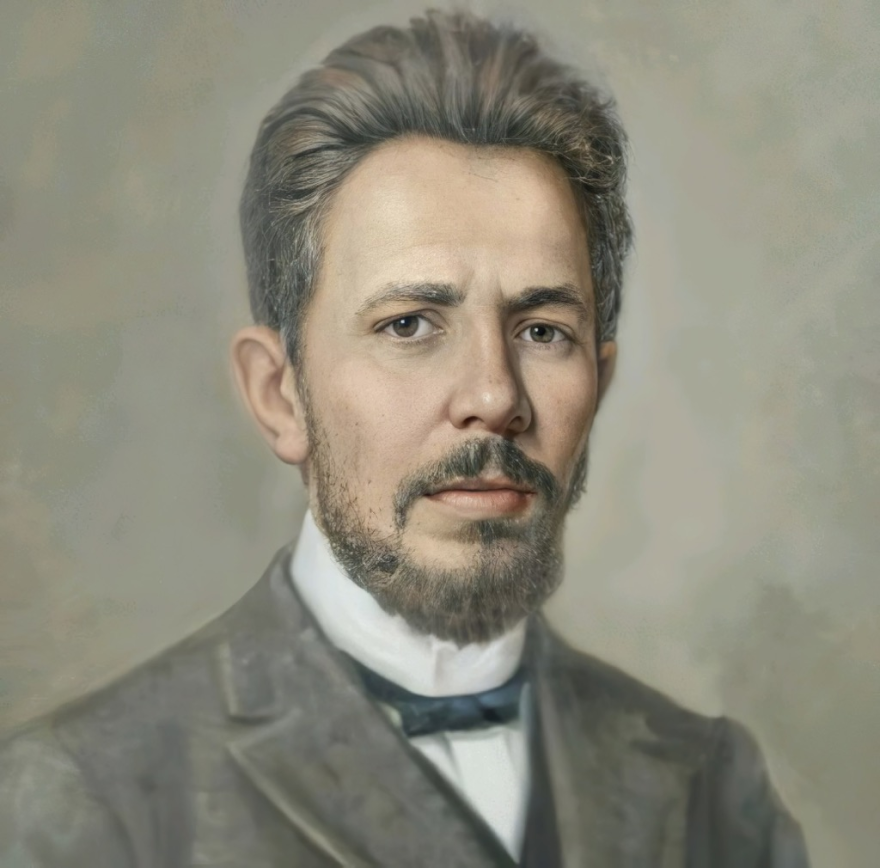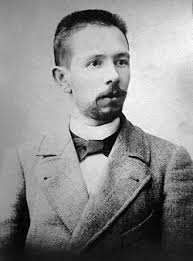Vasily Kalinnikov stands as a luminary within the annals of Russian classical music, despite his life being tragically brief. Born on January 13, 1866, in the village of Voin, near Oryol, Russia, he displayed an innate musical talent from an early age. However, his path to recognition was riddled with challenges that mirrored the hardships of his era.
Raised in a peasant family, Kalinnikov’s early years were marked by poverty and adversity. His first musical encounters were through folk songs and church hymns, echoing the rustic melodies of rural Russia. Despite lacking formal training, his natural aptitude for music led him to Moscow Conservatory in 1884, where he studied composition under the esteemed Nikolai Rimsky-Korsakov.
- Early Struggles and Triumphs: Vasily Kalinnikov, born on January 13, 1866, in Voin, Russia, faced numerous challenges in his youth. Despite growing up in poverty and lacking formal music education, his inherent talent and determination led him to pursue a career in music composition.
- Self-Taught Virtuoso: Kalinnikov was primarily self-taught in music composition. His dedication to mastering various musical instruments, including the piano, violin, and cello, allowed him to develop a profound understanding of orchestration and harmony.
- Musical Mentorship: While working as a cellist in a theater orchestra, Kalinnikov caught the attention of composer Alexander Glazunov, who recognized his exceptional talent. Glazunov became Kalinnikov’s mentor, guiding him in his musical endeavors and providing invaluable support.
- Symphony No. 1: Kalinnikov’s Symphony No. 1 in G minor, composed in 1894, stands as one of his most celebrated works. Praised for its lush melodies, rich orchestration, and emotional depth, this symphony showcases Kalinnikov’s distinctive style and marked his emergence as a prominent composer.
- Influence of Folk Music: Deeply rooted in Russian folk traditions, Kalinnikov’s compositions often incorporate elements of folk melodies and rhythms. His profound connection to the Russian countryside and its musical heritage is evident in pieces like his “Bylina Overture” and “Two Russian Folk Songs.”
- Health Struggles: Throughout his life, Kalinnikov battled poor health, exacerbated by his impoverished upbringing and strenuous working conditions. Despite facing constant setbacks due to tuberculosis, he remained dedicated to his craft, composing prolifically until his untimely death at the age of 34.
- Symphony No. 2: Kalinnikov’s Symphony No. 2 in A major, completed in 1897, further solidified his reputation as a masterful symphonist. Praised for its sweeping melodies, evocative themes, and expert craftsmanship, this symphony ranks among the finest achievements of Russian Romanticism.
- Recognition and Legacy: Despite his relatively short life, Kalinnikov left behind a significant musical legacy. His compositions continue to be cherished by musicians and audiences worldwide, with his symphonies, tone poems, and choral works earning enduring acclaim for their beauty and emotional resonance.
- Impact on Russian Music: Kalinnikov’s works exerted a profound influence on subsequent generations of Russian composers, including Sergei Rachmaninoff and Dmitri Shostakovich. His melodic inventiveness, harmonic richness, and evocative orchestration served as a source of inspiration for many composers of the late Romantic and early modernist periods.
- Rediscovery and Revival: In recent years, there has been a renewed interest in Kalinnikov’s music, with conductors and recording artists championing his works on international stages. This revival serves as a testament to the enduring appeal of Kalinnikov’s music and ensures that his contributions to the world of classical music are remembered and celebrated for generations to come.


Comments are closed